University of Warsaw
The University of Warsaw (UW) is a university founded in 1816 under the name of the Royal University of Warsaw. It is the largest, the best and one of the oldest universities in Poland, and at the same time the longest operating university in the capital. In 2019, it won 1st place in the competition of the Polish Ministry of Science and Higher Education called "The Excellence Initiative - Research University (2020-2026)". In world rankings, it holds a leading place among Polish universities, such as the 258th place in the prestigious QS World University Rankings from 2025.
Currently, the UW consists of 25 faculties, where over 36 thousand undergraduate and graduate students are being educated. The university employs over 8 thousand employees.
Direct cooperation agreements with over 380 foreign entities, as well as cooperation between domestic universities and between the faculties of the UW themselves create a unique opportunity for interdisciplinary studies, such as the Nuclear Energy major, where students can learn from the best specialists in a given field.
Physics and astronomy at the University of Warsaw appeared in 1816 as part of the then-called Faculty of Philosophy. In 1825, the Astronomical Observatory was established. Currently, the Faculty of Physics at the UW includes the Institutes of Experimental Physics, Theoretical Physics, Geophysics, the Department of Mathematical Methods of Physics and the Astronomical Observatory. Research covers almost all areas of modern physics, on scales from quantum to cosmological. The Faculty's research and teaching staff consists of more than 250 academics. More than 1,100 students and about 170 doctoral students study at the UW Physics Department. The University of Warsaw is ranked among the world's top 300 institutions educating in Physics in the Shanghai Global Ranking of Academic Subjects.
UW's Faculty of Physics does not only have an excellent research and teaching staff, but also has well-equipped laboratories where research is conducted in such fields as nanotechnology, photonics, quantum optics, biotechnology and bioengineering. Researchers of this department participate in the work of international research groups at centers such as CERN, DESY, GSI, CNRS, EMFL, Fermilab, J-PARK and LIGO-Virgo. Thanks to these collaborations, students have the opportunity to participate in the most important physics experiments conducted around the world. Students at the UW Physics Department also have at their disposal a unique space for creative activities called Makerspace@UW. It's a place where ideas can be put on paper, but also printed in 3D or woodworked.
The history of academic chemistry in Warsaw has its beginnings in the Medical School established in 1809, then also known as the Academic-Medical Faculty. In the Royal University of Warsaw established in 1816, it became the Faculty of Medicine. The University Statute of 1818 placed chemistry in the Faculty of Philosophical Skills in Department III – Natural Sciences.
In October 1955, the first independent Faculty of Chemistry in Poland at the University of Warsaw began its operations. It was located in the Chemistry Building at 1 Ludwika Pasteura Street.
The Faculty of Chemistry at the University of Warsaw consists of the following didactic departments: Organic Chemistry and Chemical Technology, Inorganic and Analytical Chemistry, Theoretical and Structural Chemistry, and Physical Chemistry and Radiochemistry, as well as the Laboratory of Chemistry Education and the Faculty Measurement Laboratory. Research covers almost all fields of modern chemistry, including nuclear chemistry. The Faculty's research and teaching staff consists of over 200 academic teachers. The Faculty has over 500 students and 100 PhD students (as part of the Doctoral School of Exact and Natural Sciences of the University of Warsaw). It has not only excellent research and teaching staff, but also very well-equipped laboratories, including radiochemical laboratories equipped with hot chambers. The Faculty of Chemistry conducts research in the fields of theoretical chemistry, quantum crystallography, (radio)pharmaceuticals, electrochemical energy sources, nanomaterials and biologically active substances. Interdisciplinary research is conducted.
Faculty of Asian and African Studies (former Faculty of Oriental Studies)
The Faculty of Asian and African Studies at the University of Warsaw is the largest and most comprehensive academic unit of its kind in Poland, researching, teaching and popularising knowledge about Asian and African countries and their cultures, languages, histories and societies. It offers 16 didactic programmes and the oopportunity to study 30 languages. The faculty's academic staff consists of 170 employees and it educates over 800 students.
Scientific research is conducted within eight disciplines: literary studies, linguistics, history, philosophy, cultural and religious studies, art studies, political science and archaeology. Many researchers use several methodologies, which allows for a more comprehensive approach to the issues explored. An example of interdisciplinary research is the Archeo-Oriental Studies project, which combines the work of archaeologists and orientalists as part of the Initiative for Excellence - Research University (IDUB).
In addition to language learning, the Faculty of Asian and African Studies' didactic programmes enable the exploration of tradition and the contemporary situation of the inhabitants of Asia and Africa. As a result, graduates are prepared to work not only as translators, but also as advisors, analysts or specialists in intercultural relations. Currently, the Faculty of Asian and African Studies offers three programs in English: African Studies, Inner Asian Studies: Mongolian and Tibetan Studies and Religions of Asia and Africa: Buddhism, Islam and Others and plans to increase the teaching offer in English.
One of the most popular Asian and African Studies Studies major is Korean Studies, which offers full-time and evening studies, providing comprehensive language learning and education in the broadly understood Korean culture. The Department of Korean Studies constantly develops and deepens contacts with partners from the Republic of Korea, conducting lively scientific and student exchange with local universities. Thanks to the translation work of Koreanists from the Faculty of Oriental Studies, Polish people can get to know the works of outstanding Korean writers, such as Han Kang, a 2024 Nobel Prize winner.
| Published on: | Dec 6, 2024, 5:24 p.m. |
| Updated: | Oct 16, 2025, 5:01 p.m. |
Last update on Oct. 16, 2025, 5:01 p.m.
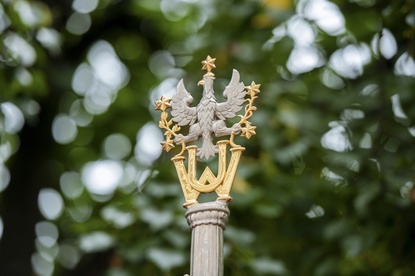
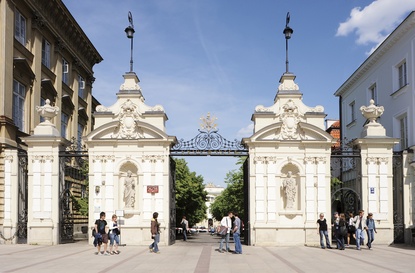

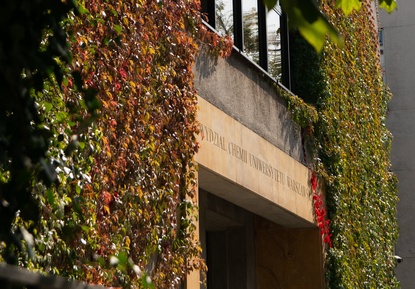
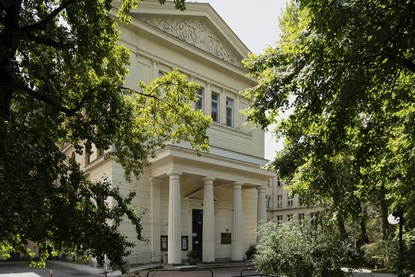

Follow us